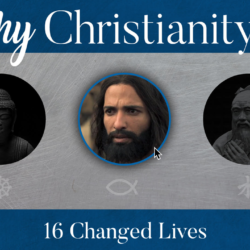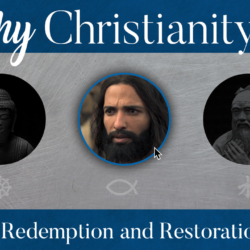What does the bible teach about forgiveness? Is it optional or mandatory? Are Christians allowed to hold grudges? Do we only have to forgive if someone apologizes? Join us as we discuss four reasons why you should forgive: (1) if we don’t forgive others, God won’t forgive us; (2) forgiving others makes sense in light of how much God forgave us; (3) forgiveness offers an opportunity to testify; (4) forgiving is better for your health. Forgiving others is simple but far from easy. Even so, it’s something we need to become good at doing.







Some great points and certainly a relevant discussion for all Christians today. Thanks again for the conversation. I love the line “unforgiveness is viral”. Please keep these great conversations coming! Also great pronunciation Rose!
Not to forgive someone does not necessarily mean that we bear them a grudge. We are all responsible for our actions and must suffer the consequences. If someone sins/causes harm to another, then as Christians we would want to help them to realise the responsibility they have to apologise and try to put things right; and that goes for us too of course if we are in the wrong.
What if the person who has wronged us or others is now dead? Because they are now dead does not mean that we condone their past actions, but we can leave them in God’s hands who understands them much better than we can, and He will be their judge, not us. And if we knew the person well, perhaps a family member, then we can remind ourselves of their good qualities and take comfort from that.
Sometimes even when we do forgive people, in some instances it may take time to rebuild trust, and a good point was made in the discussion about taking steps to protect ourselves and others.
I think the Amish was a good example – the fact that they were not concerned about what outsiders thought which shows they were genuine and not self-righteous.
Sometimes as Christians, we can be deeply affected by the actions of others, and I think we have to learn to be sad without being angry.
“Refrain from anger and turn from wrath; do not fret – it leads only to evil.” Ps 37:8
Thanks for the helpful discussion!
It obviously wasn’t long enough, though, because I am still puzzled by a couple things. 🙂
I’ll only mention one — Jesus’ prayer: “Father, forgive them, for they do not know what they are doing.” There are so many intriguing paths one could explore!
For instance, Jesus almost certainly forgave those who were crucifying him. We know for sure that “when he was reviled, he did not revile in return; when he suffered, he did not threaten, but continued entrusting himself to him who judges justly” (1 Peter 2:23). And yet, the Gospels don’t record Jesus as simply turning to his enemies and saying, “I forgive you.” Instead, Jesus asks his _Father_ to forgive them. Interesting.
Jesus’ forgiveness of his enemies is, at the very least, an insight into the breathtaking humility and love of Jesus. It is also an example for us to follow. It got me thinking, though. Are we given any indication as to whether or not God actually _granted_ this particular request of Jesus to forgive his unrepentant enemies? If so, would that be a first — God forgiving someone who hasn’t yet repented? God can do whatever He wants, of course. But the general pattern in Scripture seems to be repentance before forgiveness — if not in our human-to-human relationships, then at least in the God-to-human relationship.
By the way, give me a heads-up if you’re getting ready to unload a $5 laptop. I may have a buyer. 🙂